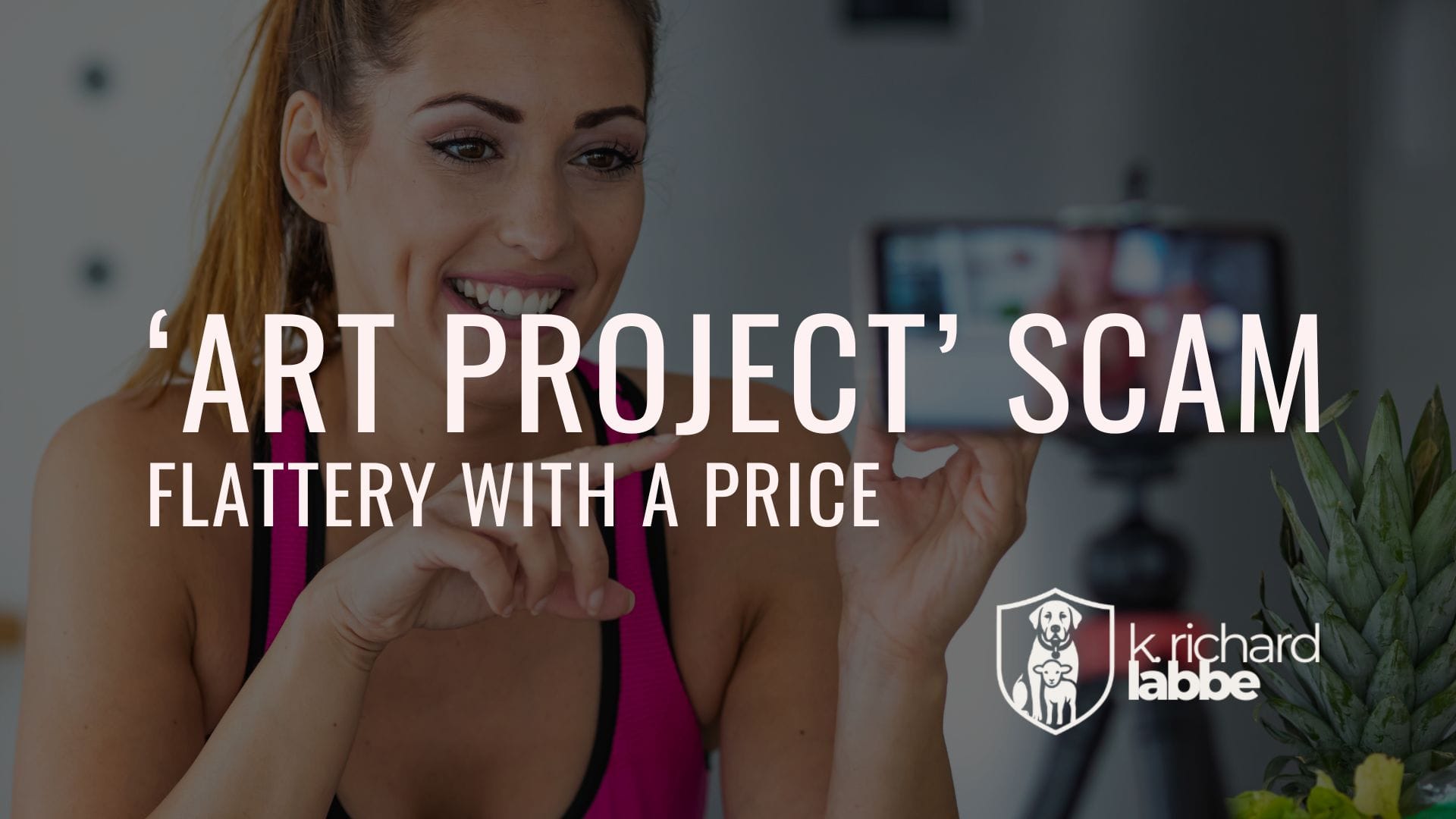The “Art Project” Scam: Flattery with a Price
Learn how the rising “art project” scam uses flattery and fake payments to steal money and personal information, and how to protect yourself.

A DM slides into your Instagram inbox. An "artist" loves your latest photo and wants to feature it in their next project—for a fee, of course. It feels personal, even validating. But this modern twist on the classic overpayment scam is turning creative collaboration into financial exploitation.
The Anatomy of Digital Deception
The con follows a predictable playbook. After you express interest, the scammer requests personal details like full name, email, and sometimes a mailing address, all framed as standard business practice.
Days later, a check arrives with a "mistake;" they've overpaid. Could you send back the difference via Venmo, Zelle, or gift cards? The original check is counterfeit. By the time your bank catches on, your "refund" has vanished into the scammer's account, and your personal information may fuel identity theft attempts.
Why Creative Platforms Make Perfect Hunting Grounds
Social media's visual nature creates ideal hunting grounds for this scam. Platforms showcase millions of photos daily, giving scammers endless targets and conversation starters. The creative community's collaborative spirit works against users here. Artists expect opportunities from unexpected places.
The scam's genius lies in its emotional engineering. Unlike phishing emails screaming urgency, these messages arrive as compliments, bypassing our fraud detection instincts entirely.
The Target Profile
Recent reports identify three primary victim categories:
Content creators and visual artists who regularly collaborate online and are primed to see legitimate opportunity in such outreach.
Casual users with appealing profile photos who have no connection to the art world but appreciate the unexpected validation.
Small business owners who maintain visual social media presence and might view this as potential marketing exposure.
Scammers particularly target accounts that suggest approachability: profiles featuring family photos, community involvement, or positive engagement patterns.
Building Your Defense Strategy
Verify before you trust. Legitimate artists have portfolios, established presence, and verifiable work history. A profile created last month with three followers isn't commissioning artwork.
Control your information. Your full legal name, physical address, and financial details should never be prerequisites for preliminary creative discussions.
Recognize payment red flags. Professional artists rarely overpay accidentally, and legitimate transactions don't require immediate "corrections" via peer-to-peer apps.
When Opportunity Meets Reality
The FTC received over millions of fraud reports in 2023, with social media-initiated scams representing a growing segment. While the art project variant may seem niche, it represents a broader trend: scammers adapting traditional cons for social media's trust-based environment.
The most effective defense remains skepticism balanced with verification. Genuine creative opportunities exist online, but they typically involve established networks, transparent processes, and reasonable timelines.
Before responding to that flattering DM, ask yourself: Does this pass the common-sense test? Real business rarely begins with strangers asking for personal information based solely on a photo they found scrolling through social media.
In our creator economy, protecting your work means protecting yourself. The line between opportunity and exploitation often comes down to asking the right questions before you share the wrong information.
Stay safe. Be ready. Online and off.
Every effort has been made to ensure the accuracy and reliability of the information presented in this material. However, Labbe Media, LLC does not assume liability for any errors, omissions, or discrepancies. The content is provided for informational and educational purposes only and should not be considered professional advice. Viewers are encouraged to verify any information before making decisions or taking actions based on it.
